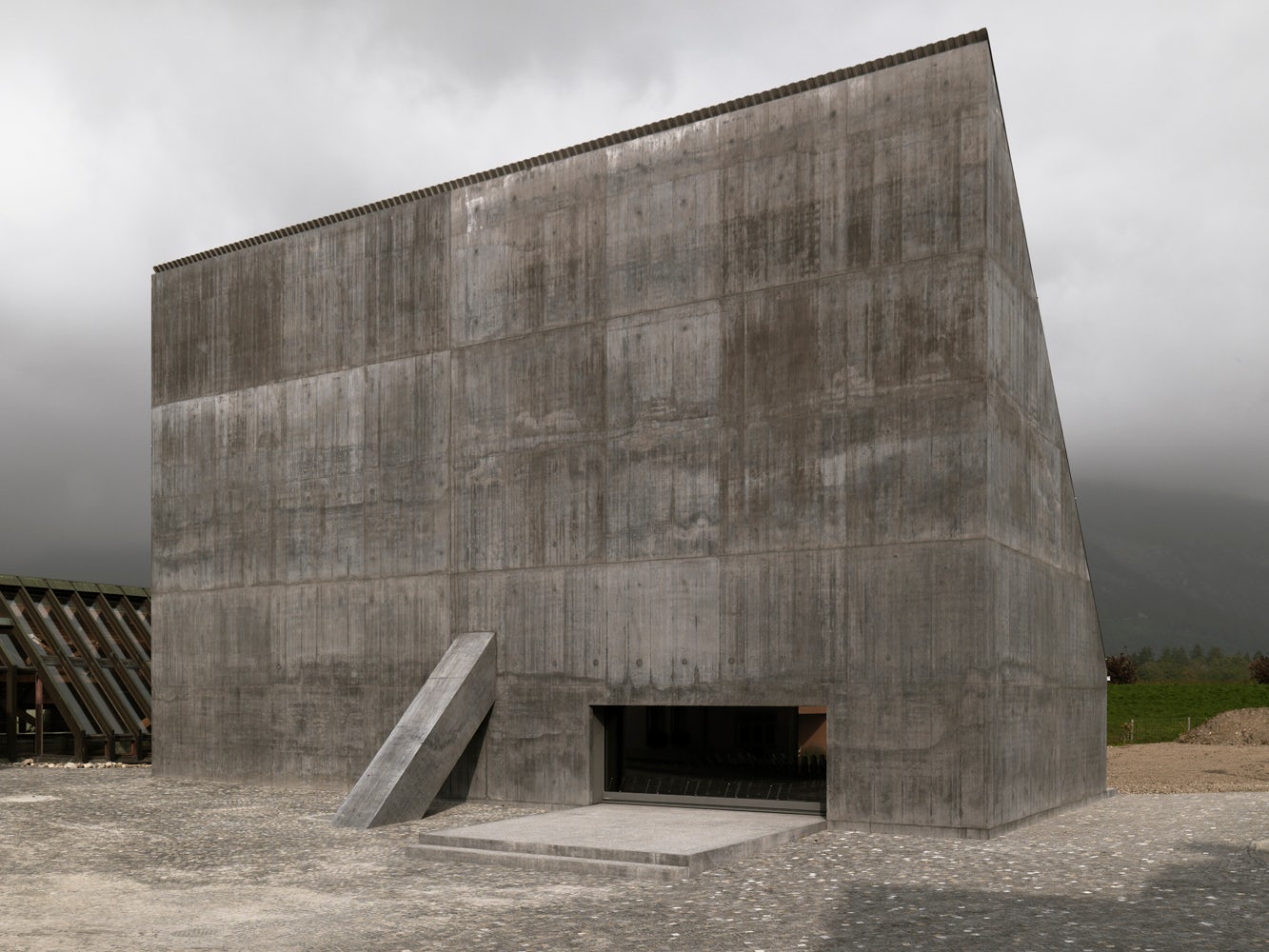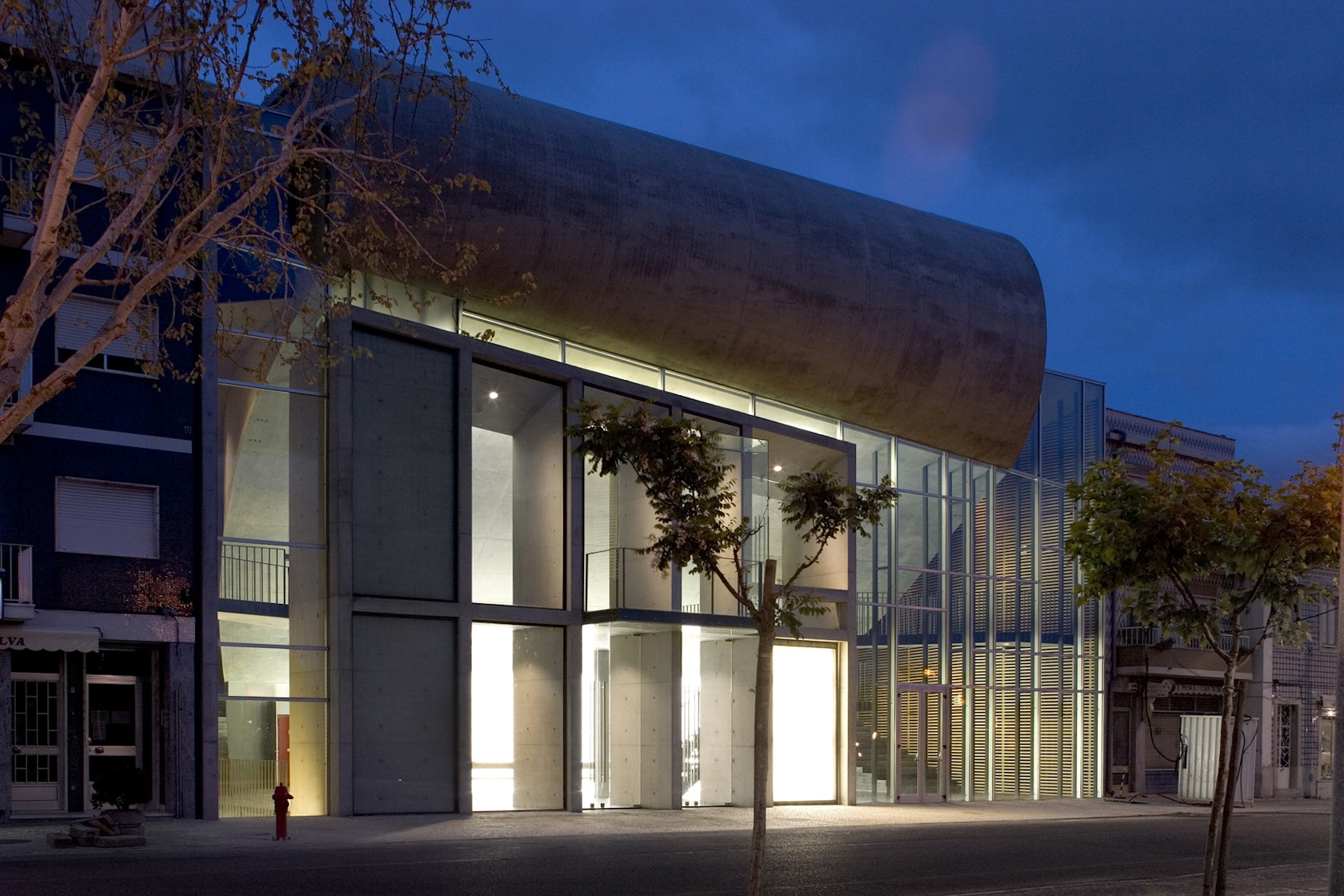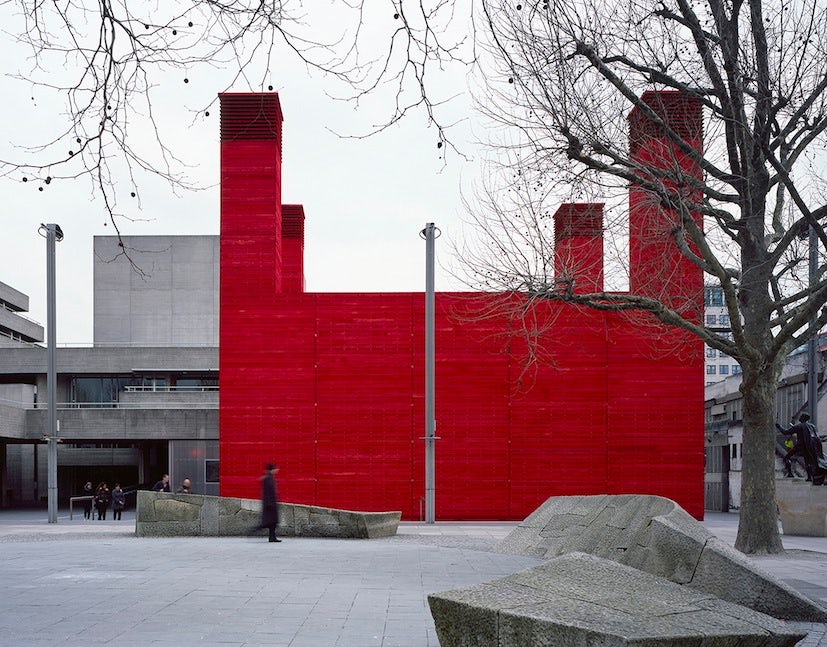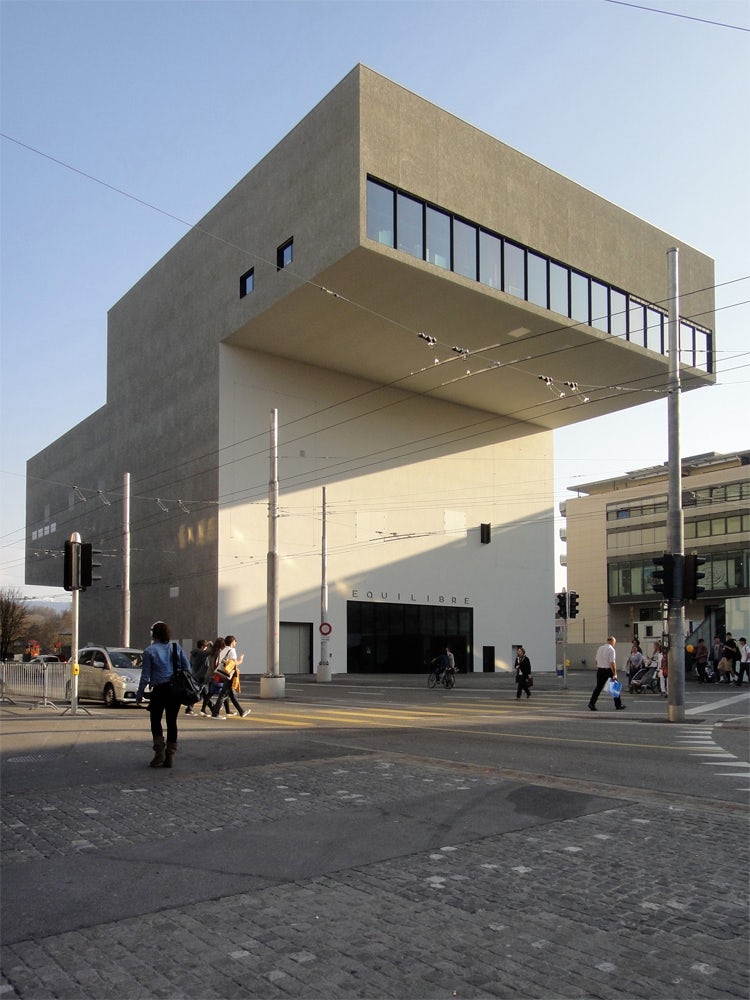As the foundational material of many structures — and the key to their structural integrity — concrete is an essential and strikingly common building material for a diverse range of buildings. In addition to its strength and durability in ensuring a building remains standing, concrete also has certain material properties that lend themselves well to specific typologies. In particular, the acoustic properties of concrete make it especially useful for large gathering spaces such as the auditorium.
Concrete has smoothed hard surfaces that tend to allow sound to bounce off and refract throughout space without absorbing it before it reaches the audience. Beyond the practical consideration of concrete’s acoustic abilities, it also retains an imposing aesthetic character, that architects have been exploring for generations. The following collection of concrete auditoriums showcase the material’s use in the open space of congregation, recalling the monumental Brutalist structures of the past and demonstrating its continued vitality.

© Takenaka Corporation

© Takenaka Corporation
Harmonie Hall in Kobe by Takenaka Corporation, Kobe, Japan
This flexible basketball gym-come-auditorium space is anchored on three sides by long concrete retaining walls that allow an expansive wood-framed roof to open up over the space, supported by wooden columns and clad with glass curtain walls.

© BERTA BARRIO + SERGI GODIA + ELOI JUVILLÀ

© BERTA BARRIO + SERGI GODIA + ELOI JUVILLÀ
Aeronautical Cultural Centerby estudi berta barrio josep peraire arquitectes, Barcelona, Spain
Located in a business park and industrial area within Barcelona’s El Prat de Llogebrat airport, this cultural center and hangar space hosts a number of events, presentations and discussions for both public cultural audiences and private business ones. An outer concrete skin clads a structural steel frame on the interior and a corrugated metal roof.

© Valerio Olgiati

© Valerio Olgiati
Plantahof Auditoriumby Valerio Olgiati, Landquart, Switzerland
This somber auditorium at a Swiss agricultural school creates a new piazza for students bounded by the imposing concrete façade. The structure is upheld with a dual system of solid and framed concrete construction, and punctuated by two opposing windows that connect site lines.


Cultural Centre, Cartaxo by CVDB arquitectos, Cartaxo, Portugal
Featuring a flowing concrete façade that cantilevers out over a glass curtain wall, this cultural center is an iconic presence in the city. The indoor auditorium of the center has exposed concrete walls and slate flooring, lending a reserved textural quality to the building.

© Haworth Tompkins

© Haworth Tompkins
National Theatre ‘The Shed’ by Haworth Tompkins, London, United Kingdom
This temporary auditorium on the site of Denys Lasdun’s classically brutalist National Theater in London adds a third auditorium space to the complex. The bold red coloring of the timber cladding contrasts with the gray color of the original building, while continuing the horizontal formwork found in its rough concrete.

© Dürig AG

© Dürig AG
New Theater, Equilibre by Dürig AG, Fribourg, Switzerland
The striking form of this 700-person theater auditorium came out of the site’s restrictions, including an already existing movie theater below ground and the desire to create open public plazas on the site. A central tower housing a foyer and the main stage anchors the building, while two cantilevered volumes project on either side housing the auditorium and rehearsal rooms/administrative offices.

© atelier d'architecture King Kong

© atelier d'architecture King Kong
L’Astrada Concert Hallby atelier d’architecture King Kong, Marciac, France
This concert hall hosts the French town of Marciac’s renowned jazz festival and features upper cladding of unfinished concrete cast onto a series of wood battens that frame the entrance. The underlying wood structure gives the volume a rippling effect and lessens its rough texture.




